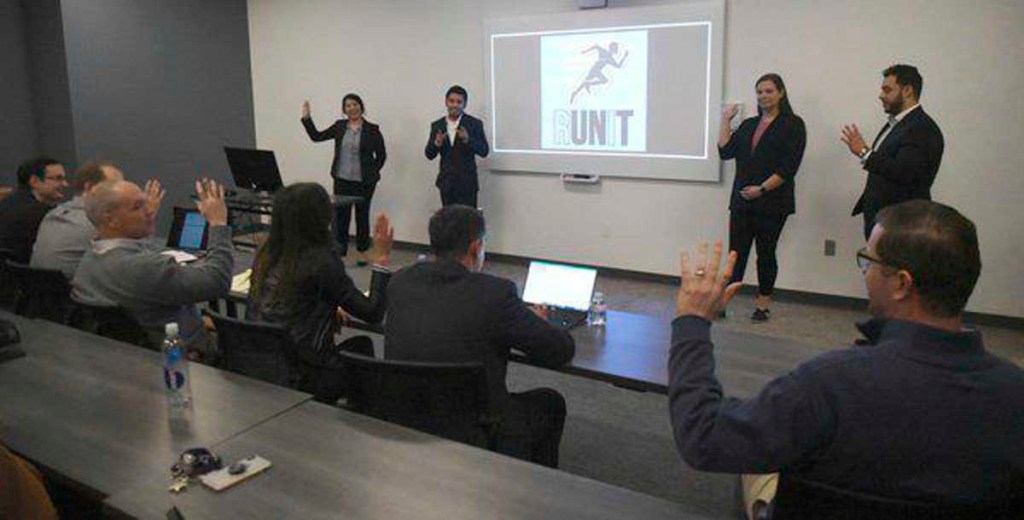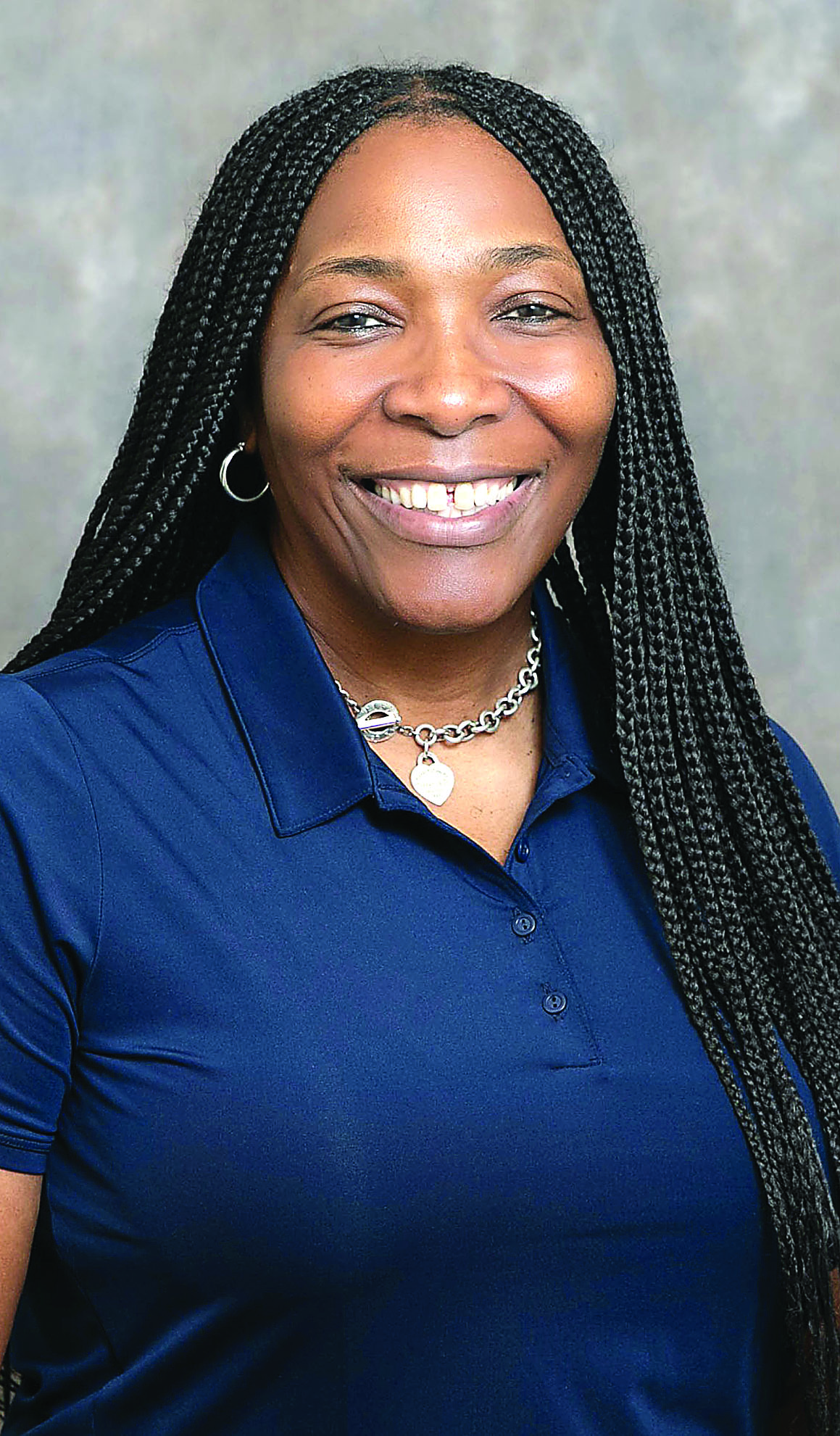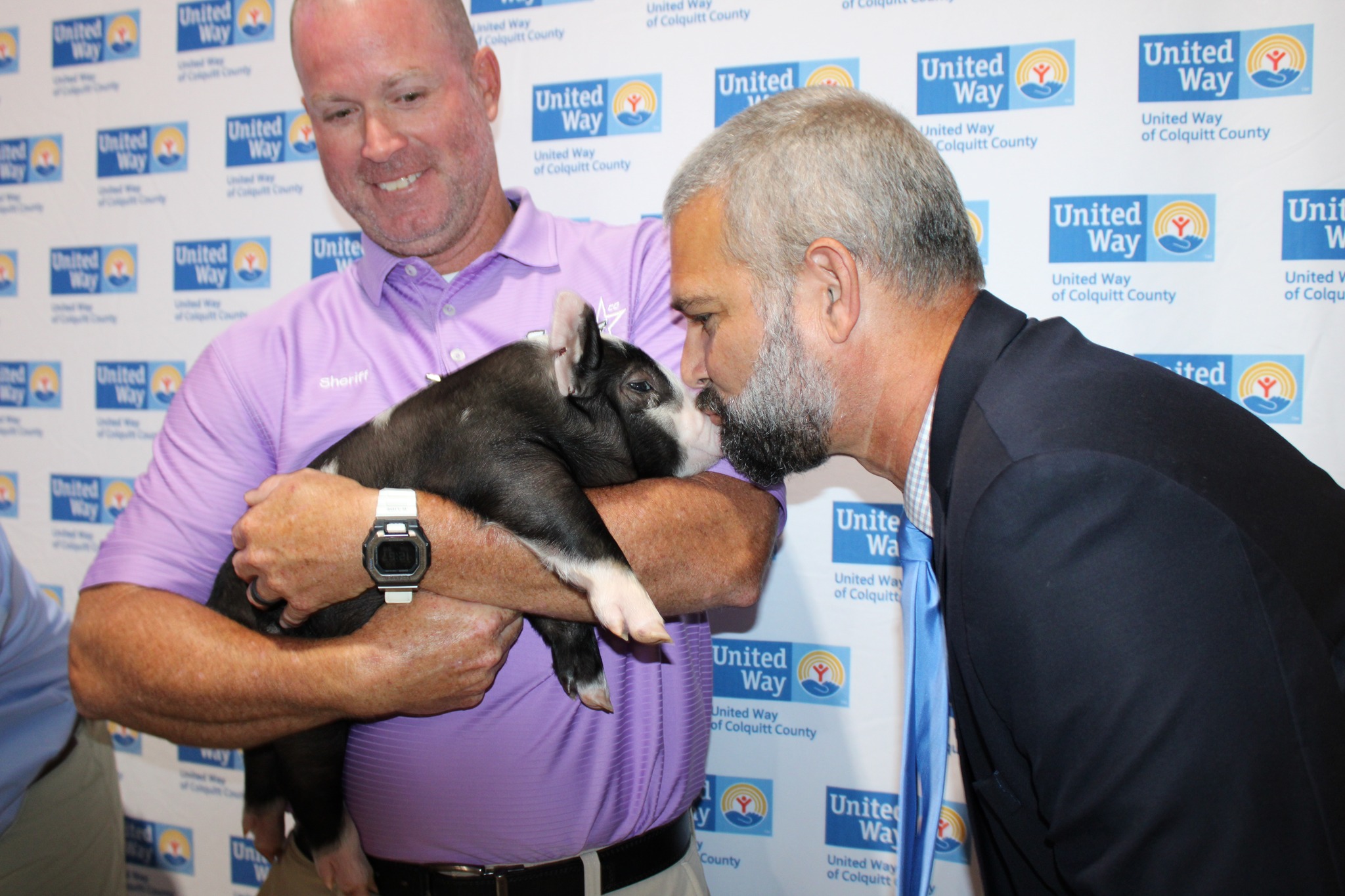‘Helping perpetuate Dalton’s spirit of entrepreneurship’: College students propose new businesses
Published 3:15 pm Monday, December 9, 2019

- Jose Hernandez (center, black jacket) began his team's pitch for Run It by asking a question of audience members and having them respond with raised hands.
DALTON, Ga. — After students in Dalton Public Schools and members of the community offered their entrepreneurial plans in the city’s PitchDIA contest earlier this fall, Dalton State College students took their turn at selling business ideas on Wednesday to a panel of judges in Barry Slaymaker’s entrepreneurship class.
A triumvirate of teams advanced to the finals, earning extra credit points, with the winning trio of Santi Angel, Blake Hayes and Jack Miles ultimately claiming the victorious idea for Dalton Moves, their shared micro-mobility business.
This is the second year Slaymaker has asked students to conceive of original business ideas based in northwest Georgia and refine them throughout the semester before the class concludes, he said. “You guys have a tough task in this class, because it’s not easy to just come up with ideas, but you guys engaged with mentors and came up with creative businesses that were generally viable.”
The entrepreneurship class for junior-level business students “is proving so popular we are offering the class each semester,” said Marilyn Helms, dean of the C. Lamar and Ann Wright School of Business. “With the area PitchDIA competitions and Dalton’s strong and lengthy history of entrepreneurship, it is not surprising that today’s students are drawn to new venture creation, (and) it seems almost every business student has an idea for their own start-up, and being their own boss is an attractive career option for students.” The DIA in PitchDIA stands for the Dalton Innovation Accelerator.
Slaymaker will work with the team behind Dalton Moves to improve their idea for the University System of Georgia’s statewide pitch contest in April, where the winning squad earns $25,000 for their business, he said. At that contest, teams have only two minutes to make their cases to a panel of more than two dozen judges.
Having “industry professionals” like Slaymaker, of Barrett Properties, teach the class “only adds to the excitement,” and by using industry guests to mentor student teams and serve as judges for the final pitches, “students have the unique opportunity to interact with members of the business community,” said Helms, a member of Wednesday’s judging panel. “The judges had such great questions that will motivate students to continue to refine their ideas and hopefully open these businesses in our community.”
The Dalton Moves team noticed “a gap in Dalton’s transportation market” they could attempt to fill with shared micro-mobility, in their case, a choice of electric scooters or electric bicycles for customers, Angel said. The micro-mobility industry is currently valued at $200 billion.
These scooters and bikes not only provide convenient transportation, but they are a mobility “experience” and an ideal way to “get people outdoors,” Angel said. The conveyances would be based at four locations, all within a five-mile radius: Dalton State College, Civitan Park, The Mill at Crown Garden and the Burr Performing Arts Park.
Vehicles would dock at solar-powered charging stations and be procured by customers through use of a mobile app, Hayes said. The hourly rate would be $8, the daily rate would be $30, and an annual rate would be $400.
They believe they could launch the company with an initial investment of $200,000, Miles said. They expect to be profitable by the second year.
They’ll start with a fleet of 40 scooters and bikes, Angel said. Their main publicity would be through social media, understandable considering the service would be geared toward a younger clientele.
Dalton Moves is a unique proposition for this city, and it demonstrates students are both observing businesses in larger cities and working to customize those ideas for this area, Helms said. “This is a great illustration of the diffusion of innovation.”
Other finalists included Southern Oaks Farm, an agritourism venture advocated for by Hannah Gasaway, Grace Nabila, Jose Villalobos and Taylor Voyles, and Run It, an on-demand personal assistant company from Berenice Hernandez, Jose Hernandez, Shaynee McClure, Connie Quintero and Cristian Rodriguez.
The farm would always offer services like a playground, mini tractor rides and a food truck, while other opportunities would be seasonal, such as a pumpkin patch, corn cannon, corn maze and pig races in the fall, and Christmas trees for purchase, hot chocolate and Santa Claus appearances during the holidays, Voyles said. The barn on the property could be rented as a venue for everything from weddings to birthday parties.
Marketing would include fliers, coloring books for children with coupons for Southern Oaks Farm for their parents, T-shirts, free samples and stickers, Gasaway said. “Everyone loves stickers.”
Run It would provide more leisure time for individuals by having assistants take care of various errands, Jose Hernandez said. In addition to excelling at a plethora of tasks, the goal is to foster lasting relationships between customers and runners.
Jobs for runners could include everything from laundry, pet care and furniture assembly to grocery delivery and seasonal decorating, McClure said. “We know your time is valuable, so let us make time for you.”
Many students completing Slaymaker’s entrepreneurship class will take the Business Accelerator Practicum, “where they work with nascent entrepreneurs at our (Wright School of Business) downtown Dalton classroom in the Landmark building,” Helms said. Students assist other would-be entrepreneurs with business plans, accounting system setup, social media and other business tasks, and “the cycle continues when the businesses they assist later become contestants in the 2020 PitchDIA competition.”
“All of Dalton benefits from the creations of new businesses in our area, (as) small businesses hire local employees, and over two-thirds of the revenue small businesses generate stays in the area,” she added. That adds to the economic impact of start-up companies, and the Wright School of Business “is excited that we are helping perpetuate Dalton’s spirit of entrepreneurship.”
Slaymaker said Dalton Moves ultimately had the edge due to financial viability, including relatively-modest front-end costs.
“The shirts were a nice touch, too,” he added with a laugh, referencing the Dalton Moves T-shirts that Angel, Hayes and Miles wore under their blazers.
Citywide, there’s an emphasis on “innovation,” so a shared micro-mobility company seemed like a felicitous fit, Angel said. They also focused on “being detail-oriented and taking our time.”
Ultimately, the main lesson learned from this process was simply to “ask for feedback,” he added. “Ask for help whenever you can, because people will help you.”
Their team’s concept has the potential for “scalability,” which will be paramount for a successful pitch at the state competition this spring, Slaymaker said. “If we could make this palatable in small and medium cities across the state and region, not only Dalton, that would warrant more investment.”





